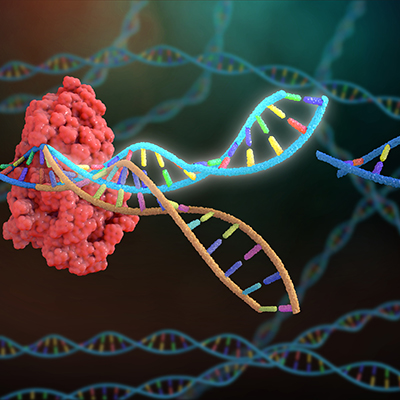August 25, 2022 -- Scientists at the Gladstone Institutes and the University of California, San Francisco (UCSF) have developed a new approach using CRISPR-Cas9 gene editing to produce massive quantities of cells for therapeutic applications.
While the first therapeutic applications of CRISPR-Cas9 have recently entered clinical trials, the technology is limited by its reliance on viral vectors to carry the DNA (the DNA template) used for gene therapy into cells. Manufacturing huge amounts of clinical-grade viral vectors is a bottleneck in getting cell therapies to patients and researchers can't easily control where traditional viral vectors insert genes within the genome.
In their paper, published August 25 in the journal Nature Biotechnology, the researchers describe the technology -- which makes the task of reengineering massive quantities of cells for therapeutic applications easier -- and how their nonviral approach to gene engineering is not as limited by cost, manufacturing complexity, and supply chain challenges.
The researchers also demonstrate how their approach can be used to generate chimeric antigen receptor (CAR) T cells. In the study, they used the new DNA template to generate more than 1 billion CAR T cells that target multiple myeloma.
"We showed that we can engineer more than 1 billion cells in a single run, which is well above the number of cells we need to treat an individual patient," first author Dr. Brian Shy, PhD, a clinical fellow at UCSF, said in a statement.
"This new nonviral approach enables us to achieve that targeting much more efficiently, which will accelerate the development of the next generation of CAR T-cell therapies," added co-author Justin Eyquem, PhD, assistant professor of medicine in the division of hematology and oncology at UCSF and affiliate investigator at Gladstone.
Next, the researchers are seeking approval to advance clinical trials using nonviral CRISPR technology in both CAR T-cell therapy and the treatment of IL2RA deficiency, a gene associated with rare genetic immune diseases.
Copyright © 2022 scienceboard.net








